As campuses reopen for face-to-face teaching for all, sector leaders ask how students have fared through COVID

@Jisc, the UK’s education and technology not-for-profit, has published the second episode of its ‘HE Leaders’ podcast series, with managing director of higher education (HE), Jonathan Baldwin, chairing a conversation around the post-COVID student experience.
Julie Lydon, vice chancellor of the University of South Wales, observes “a strong sense of collegiality” and “great creativity” among learners throughout the pandemic. “Being connected as a community has been really important,” she says.
The deputy chief executive of Lancaster University, Nicola Owen, agrees: “Students have been remarkably resilient. They’ve made the best of what has been a challenging period for them, and I think they have really appreciated efforts that have been made [by the university], seen that we’ve innovated as we’ve gone along, and participated in that innovation.”
In a comment echoed by all panelists, Owen notes: “We’ve seen really high levels of engagement.”
There have been difficulties too, however. The CEO of Studiosity, Mike Larsen, says students report feelings of “isolation and anxiety” – combined with “gratitude for the efforts being made by universities to continue to support their learning and deliver their programmes.”
Baldwin praises the work that has been put into make this transition successful. “All universities are grappling with this,” he says. “Leading and managing in the digital world is very different from managing and leading in the physical world.”
Overall, Lydon says, “HE in the UK has, for many years, been exploring ways in which there can be a greater partnership with our students, from the design of curriculum and learning experiences right the way through to students being on the governing body.”
COVID has accelerated the delivery of digital, remote and online teaching and learning, and Lydon welcomes greater accessibility and inclusion, and greater student participation, as a result.
The ‘HE Leaders’ podcast series develops themes from Jisc’s new three-year strategy.
The third HE Leaders podcast will be available in June, bringing a different panel of experts together to discuss culture and leadership.
In this podcast, Jon Baldwin, managing director for HE at Jisc, is joined by Julie Lydon, vice chancellor of the University of South Wales, Nicola Owen, deputy chief executive of Lancaster University, and Mike Larsen, CEO of Studiosity. They discuss post-COVID student experiences and address themes of Jisc’s powering UK higher education strategy.
HE leaders podcast – episode 2 – Audio transcript
Jonathan Baldwin
So, hi everyone – and welcome to the second episode of the Higher Education Leaders podcast. I’m Jon, Jon Baldwin, managing director of higher education at Jisc, and I’m delighted to be joined by three leaders from the higher education community for this session.
This time, I’m joined by Julie, Julie Lydon, vice chancellor of the University of South Wales; Nicola, Nicola Owen, who’s the deputy chief executive at Lancaster University; and Mike, Mike Larsen, who’s the chief executive officer of Studiosity. And thank you to all three of you for joining us.
Today, we’re going to be focusing on reframing the student experience, looking at how digital solutions can improve and enhance that experience, and also, hopefully, provide maybe greater equity in access and participation. There’s a lot for us to go at, building from the work we’ve done at Jisc, engaging with members through our Learning and teaching reimagined initiative.
So if I could, first of all, turn to you Julie. Maybe you could just introduce yourself, and perhaps offer a reflection on how your students – so a big question – but how your students have tackled 2020/21. How do you think they’ve felt through all this messiness, Julie?
Julie Lydon
Thank you very much, Jon. So, our university’s got about 30,000 students – about 22,000 of them based in the United Kingdom, 8,000 based elsewhere. They are largely slightly older learners, so about a quarter of them are the traditional 18-year-old entrant, three quarters are older when they join us. And most of them are not from wealthy families. So actually, for them, there is an expectation that this higher education opportunity will open up their lives, and they’re particularly interested in jobs and careers.
So that’s by way of background. Looking at what this last period has meant – and perhaps what we have learned and what our student body are reflecting back to us – first of all, I think being connected as a community has been really important. Actually, that’s something our students have particularly welcomed, and the ways in which we do that I’ll talk about more as we go through the session.
I think [there’s a] level of collegiality across the university, across the university communities. We are a diverse university in terms of the subjects that we offer. And we are geographically distributed, globally and within Wales.
I also think the creativity that our students and staff have shown to what was a very challenging, and continues to be a very challenging, time is to be recognised. I want to stay with challenging part of this, because I think, if we’re honest, overall for everybody there have been degrees of difficulties, of times where this this environment has felt as if it’s sucking your energy, rather than giving you energy. And I think that whole process of how do you get resilience, how do you adapt, and how do you keep your wellbeing – whether that’s wellbeing to learn and study or wellbeing to work – have been really important features of the work that we’ve taken forward. I would say, largely, our staff and student community has been hugely professional, hugely resilient, and engaged during this whole time. We’ve probably had a higher level of engagement in encounters with students than we would have when we were in the old days of all-physical, on-campus engagement.
Jonathan Baldwin
Julie, thank you, that’s really helpful, and there are some themes there to which we will certainly return, including student and indeed staff wellbeing.
Nicola, can I put the same question to you, please? [You’re] in a campus university, [with a] large number of students normally living on that campus. Obviously, that’s been impacted. But how has your community felt about, coped with, all of this?
Nicola Owen
Thanks Jon. Lancaster has around 16,000 students in total, but around 6,000 of those, as you say, are typically on campus – and we’ve had student numbers between 1,000 to 4,000 on campus at different points during the pandemic, all the way through. So there has been, still, a rather strange and restricted form of campus experience for several thousands of students. But, nevertheless, that that typical student experience that we try to create around the campus has been impacted all the way through.
We’ve also got around 25% of our population that are overseas students and during the pandemic, we’ve probably had around 2,000 of those students who haven’t actually come to campus – who have either returned home or didn’t arrive for their study, and have been studying overseas. So in terms of thinking about how we can support that experience, that’s been a really big challenge for us in terms of the way that we normally operate. So I think overall, a lot of what Julie said resonates with the way that it’s been at Lancaster – and, indeed, from others that I hear across the sector.
Students, actually, have been remarkably resilient in in the most part. They’ve made the best of what’s been a challenging period for them in many ways. And I think they have really appreciated what efforts have been made. They’ve appreciated that we’ve innovated as we’ve gone along, and actually they’ve taken part in that innovation. We’ve seen really high engagement in study. Possibly, in terms of attendance, some higher engagement than sometimes we’ve [previously] see around lectures, etc.
And they’ve been really, really good in terms of giving us in-time feedback and helping us develop as we go along. Again, like Julie, I’m happy to refer to some of the ways we’ve done that.
I think, where it’s been most challenging for them, has been in making that connection meaningful, even in residence, where people have been limited, effectively, to their flats. That connectivity. That’s been pretty difficult, particularly for first year students who are new to Lancaster, new to the UK, to build the cohort around them.
And we’ve had to take opportunities where we can, where restrictions have allowed, or indeed innovate digitally to try to bring in that sense of cohort-building extra-curricular activity. I think that’s been probably the toughest area for both our students and, indeed, for our staff; to really try to make that something which is rich and meaningful and reaches sufficient numbers of students.
Jonathan Baldwin
Nicola, thanks – a lot of powerful points made there, to which we will return. Certainly, the experience of international students is an important one, the building of cohorts, because that’s not just through the classroom, as we all know.
And Mike, it’s a good segue to you really, because you work with many partners in the UK and internationally. You have been heavily engaged through the pandemic. You’ll have seen and felt student responses in different ways to Nicola and Julie – but nevertheless, just as focused. What observations would you offer, Mike, at this point?
Mike Larsen
Thanks, Jon. And to provide some context, Studiosity partners with over 100 tertiary education institutions across Australia and New Zealand and the UK. And, in doing so, supports about 1.3 million students with academic literacy support.
Look, I would say, there are three key things that we saw coming out of the huge and unexpected spike in interaction. So, to give you an idea, demand in the UK last year was up 70% – seven zero – over what we expected pre-pandemic. I guess the feelings that we were seeing from students, through semantic analysis, were feelings of isolation – so very similar to what Nicola mentioned. And really, really difficult to overcome. A huge amount of anxiety.
But also, I would say a huge amount of gratitude – partly to Studiosity, but mostly to their university staff and teaching staff. You know, they were quite aware of the efforts that were being undertaken by universities to convert courses to online, to try to minimise disruption to students. So I think they’re incredibly grateful for that – and it’s made a big difference.
I guess, as online and blended learning has become, or is becoming, more the ‘new normal’, I think their expectations are starting to evolve with that.
Jonathan Baldwin
I agree with that Mike, thanks. And I was going to say, maybe taking us into the next theme, I too saw – and we saw through learning and teaching reimagined – that students were very pleased with the emergency response that universities made. But I think, over time, that’s been seen as that ‘emergency response’. As we move into ‘business as usual’, the expectations of students, the expectations of their supporters, harden. Deepen. And that creates a challenge for university leaders, university academics, and professional staff.
Our own research for learning and teaching reimagined demonstrated that students found blended learning and blended approaches engaging, interactive, flexible, accessible and convenient. But, to the points you’ve all made, they also worried about less sociability, the prospect of isolation and loneliness, [they found it] harder and more difficult to communicate, to maintain motivation – and [it’s been harder to maintain] that sense of community that Nicola spoke of.
And then it moves on to: what [is the] role for students in their own experience? Is there a sense that, rather than being passive recipients of knowledge, they should be more active? Indeed, in some areas, co-creators of knowledge in the classroom experience? And I wondered if you have any broad thoughts in those areas. Julie, I’ll come to you as a vice chancellor first.
Julie Lydon
I think higher education across the globe – and particularly in the United Kingdom – has for many years been exploring ways in which there can be a greater partnership with our students, from the very concept and design of curriculum and learning experiences and degrees and titles of doing things – the whole package – right the way through to, for many UK universities, [having] students as part of the governing body, part of the overall responsibility for the university’s future and what it does. So I think those remain.
I think what we’ve found during the pandemic is that actually the online arrangements have enabled both the localised student voice systems that we have in place, right the way through to the formality of students as part of our governance and leadership, to be much more accessible. I think it’s become more equal and inclusive. I know, with my own experience of chairing, having ‘hands up’ approaches, at times, is a bit frustrating. But it undoubtedly means that everybody gets their voice heard in a way that we probably wouldn’t be able to do in normal, physical times. That’s, the first thing I think I’d want to say.
There’s no doubt we found much greater participation when we’ve been doing online sessions with students, where we’ve had online consultations with them. [And] where our student reps are trying to reach the students they represent, actually they have reported back that the online approaches have really helped and people have been more active in that engagement.
And then the final thing I wanted just to pick up was the whole question of: are we looking at curriculum that is designed for digital learning? Or have we fundamentally just being replacing some of the static elements of the course with the learning materials? If I’m honest, I think it’s probably been more of the latter than more of the former – so more replacement of learning materials and learning experiences, as opposed to fundamentally redesigning the curriculum to be offered in digital and remote forms.
And then the final point I wanted to make is about the nature of… we call it ‘social’, but it isn’t just social. There are elements of the experiences that my students have, which we have found impossible, if not very difficult, to replace in a digital environment. So our nursing students getting hands-on experience on wards and in clinical settings. We’ve got fantastic simulated experiences, but nevertheless we can’t replace that. [Similarly], the team approach for our students in creative industries – developing films, developing various forms of media – that interaction amongst different disciplines within the creative industries has been difficult to recreate in digital, and therefore we have continued to have some hands-on experience.
So, coming back to your question about students and student engagement, I think we’ve learned an awful lot, and I think our students, by and large, welcomed having their voice heard more through this digital time, which is how we’ve been operating. But there is something about when you’re dealing with really challenging situations, or very creative solutions – from my own experience, and from our students – that’s when they’re looking for face-to-face.
Jonathan Baldwin
Thanks, Julie. As I come to you, Mike, [I’m minded that] we’re doing some consultancy work with one of our members – in Wales actually, Julie. And talking to students, they were saying “we really miss lectures, really miss lectures”. And we thought, this is a bit odd. So we dug into it, and they didn’t really mean that. What they meant was the social elements around the lecture. You know – talking to their colleagues and saying: “I didn’t quite get that, did you?” or “how did you interpret X?” or “are we going for coffee?”, that sort of social interaction that you can’t provide [when teaching remotely and digitally] very well.
Mike, listening to your students, through your teams, do you think they’re expecting more, wanting more, from this digital world?
Michael Larsen
I think they are, but I don’t think that they want it instead of being on campus, I think they want both – and I think that’s quite natural.
I mean, as human beings, we crave interaction with our fellow human beings. And I think online learning has very functional and pragmatic elements that can add an enormous amount of value to higher education. But there are definitely some positives to being on campus. And look, I’m remembering a quote from Beverley Oliver, who was the deputy vice chancellor at Deakin University. A few years ago, she said about 25% of our students are fully online and the other 75% act as if they are. I think what she meant by that is that students are online, whether it’s for learning purposes or for social or other purposes. They spend a lot of time in the websphere. So I think the challenge for us in in higher education is to make sure the experiences they’re having whilst learning online are compelling – dare I say entertaining – are engaging, and really able to create some cut-through. I think it’s a huge opportunity for the sector.
Jonathan Baldwin
Nice comment from Beverley, and it also reminds me – on the previous podcast, one of the guests was Chris Husbands, the vice chancellor of Sheffield Hallam, and he said something quite simple, but something I found quite powerful: he said that we used to think we knew our students, it turns out we have to get to know them a whole lot better. I thought that was a really interesting and powerful comment, Nicola – and I’m really trying to get at whether the whole student experience is going to be more formally framed by students, and are they going to be more engaged in their learning than they have before. I don’t know if you’ve had or are having those discussions in Lancaster, Nicola?
Nicola Owen
Absolutely – and there are perhaps a few points to pick up on from those that Julia and Mike have made.
I think, when we started to move things online – and, for most of us, that happened extremely rapidly – we did start with, effectively, a transfer model of just shifting and lifting; shifting the curriculum onto a digital delivery platform. But it didn’t take long, I think, for us to get feedback from students and feedback from staff, and adaptation started to happen. And there were some quite interesting observations coming through. So, as Julie indicated, the engagement has been higher, but not just in attendance – it’s also given the opportunity for some students who perhaps would never put their hand up in a lecture before, in a room full of 100 plus people, to actually engage through chat functions, through breakout rooms, to differentiate in that lecture format in a different way. We’ve seen our staff starting to really engage much more in team-teaching, through lecture experiences, in part to respond to the chat that’s going on, and the ability to deliver in different ways. That interactivity has come through.
So, I think we have seen evidence from a fairly early point – and certainly more into this academic year – of more innovation going on, which is, in part, being driven by student behaviour. It’s also, I think, helped us really work through some of the inclusive elements of curriculum delivery, and in thinking about the diversity of students that we have learning with us, and their different learning needs.
And one thing that we’re certainly reflecting on for the longer term – and that there is definitely excitement about – [is] what we’ve learned from many members of staff, that our processes for changing the curriculum are often cumbersome. They’re typically highly consultative through different committees, [with lots of] decision-making, lots of processes – and we’re having to really think about, well, how do we enable that to happen more quickly and become much more intuitive and interactive in the way that delivery develops? So there’s a sort of a regulatory piece that we’re trying to work through.
I think there’s also a representation piece as well. We have found, actually, that we’ve got very direct and much more immediate in our ways of engaging with the student voice and testing things out – both at the course and curriculum level and institutionally. And, actually, for our student representatives and our Students Union, that’s been, they’ve found, a lot more difficult through the pandemic. And so we’re having to really try to think, what does the student voice mean? How do we access that? And what does it mean for our representatives and systems as well?
The final thing – and Mike touched on this with his quote – is really starting to unpack what is of value for students in different methods of delivery. Because it’s very easy to take a comment – for example, the one around lectures that you were talking about, Jon, and the research there – and not dig under what’s actually being said by students about what they’re really valuing from that experience. That takes time, and it takes good engagement with students to work through.
The challenge for a university – as opposed, perhaps, to that happening at a course level – is how you get that consistency of experience and that consistency of engagement thread through the institution.
That’s the other thing, I think, we’ve seen; we’ve seen some staff who have absolutely gone with this, loved it, really excited and driven by it – and then all those for whom their digital skills, their digital confidence, and other things that happened to them during the pandemic, have made it much more challenging. So how we get that consistency of experience, I think, is something that we now are having to reflect on.
Jonathan Baldwin
And also a nice segue Nicola, into access and equity issues. And I think all those contributions are right. I was reading, over the weekend, a piece from the CNI, the coalition for network information – it’s a US-based organisation – where they’ve done some work around the research-intensives in America, and how students have responded and felt in the pandemic. And there’s a number of interesting findings, but one that struck me was where universities have run sessions where some students have been present personally and others have been online, it’s been a disaster. So the mixing of remote and in-person has not worked. And that’s causing some students to reflect on the efficacy of their experience.
But, Julie, you started by giving us a quick summary of your student profile at South Wales. Do you think that the pandemic, has de facto helped or is helping to level the playing field? There is some commentary – I’ve not gone into the research myself – that suggests the attainment gaps are reducing between the less well-off in educational terms and others. But will this review of how we work have an impact on access and widening participation, do you believe, Julie? It’s something you’ve always been committed to.
Julie Lydon
I don’t have evidence from my own institution that attainment levels are affected by what we’ve been experiencing over this last year, what our students have been experiencing. In fact, probably the reverse. We have less drop out. We have better retention. And, overall, better performance. I need to be very careful on the better performance, because obviously we’ve all had a form of policy, which has enabled us to be more permissive, I guess, reflecting the challenges that we’ve all been experiencing.
So, coming back to, I guess, two points. I think the choice we can give our students, as to how they learn, is important – but we, like you, have found the experience of hybrid is the most unsatisfactory outcome, despite many of my students coming from backgrounds where they’ve got work commitments while they’re studying. They have, in the past, tried to manage their timetabled engagement to reflect their other commitments – [and] we would want [them] to continue to be able to do that as much as possible. However, we believe that, actually, we can’t accommodate a completely flexible approach as to how individuals engage with learning. We’re not proposing to move to a completely online environment, ‘anytime anyplace’ type of access for most of the direct learning. A lot of the support for learning is already 24 hour anyway. So I think this [is a] question of being honest and upfront about that balance and what it means for individuals.
You know, at the moment, I’m sitting here and I’ve put a hold on all capital programmes in the university during the pandemic, all the starter capital programmes, and I’m saying we’re not building any more lecture theatres, thank you very much. But I don’t know, is the honest answer! I think we are still trying to understand what the future might hold, and collectively to use this experience really well to make individuals feel as if their voice counts more, and that their engagement can be self-managed more. And yet, at the same time, we expect – both as staff and students – that we will be together physically for some activities. So I think that’s the balance we’re still working through, and if somebody’s got the answer to that, I’d be very interested, because we’ve got – I’ll just give you a tiny example – we’ve got lots of practical subjects; we’re a very applied university – and for those [courses], they are very clear [for which] bits we need people [on campus], and [which] parts we can easily accommodate online. But [with] degrees like history or our law degrees, I probably have more direct contact from the students in those areas, because they are the ones that have really missed the lecture-type environments. And they’ve missed it because of the social interaction around those lectures and the moments you can turn to your colleague and say ‘I didn’t quite pick up what they said, could you explain it again’. And they’ve probably been some of the most vocal about the challenge of online environments. So the ‘one size fits all’ is probably not where we’re going to be in looking at this balance between online, on-site, the nature of that engagement. Nevertheless, you know, at institutional level, the question of how do you regulate that, how do you support that – we’re trying to not rush it it too quickly. Because we don’t want to find that, actually, we make big errors, either in our investment programme going forward or in how we supporting staff and students.
So I’m almost trying to slow down, at one level, some colleagues who want to move very quickly and to set the die for the future. So again, I think learning from what other people are doing and hearing, on this podcast, what others are about, will feed into our thinking for the future.
Jonathan Baldwin
Thanks Julie. I think what you outline there is something that all universities are grappling with. How to manage and lead in the digital world is something quite different from managing and leading in, let’s call it the physical world.
And if I just come to you, Nicola, and then back to you, Mike. Nicola – just linking to that point about access and participation, but more about students generally. Of course, being on campus is also part of that whole wellbeing question, which was touched on at the beginning of the podcast. Any observations in that broad area, Nicola?
Nicola Owen
So, I mentioned in my opening remarks, Jon, that our experience has been that we’ve had significant numbers of students who have both elected to come onto our campus and be resident in their rooms. They could have chosen to not pay their rent, they’ve actively chosen to attend into the residences. And also we know from looking at our own data that we’ve also got significant numbers of students who have returned to the city. And, in trying to understand that, I think that is telling us something about how students see their whole experience – and that includes the learning experience beyond the digital.
So we’ve seen, for example, we’ve got students who are back, who are engaging in in-person teaching in laboratories, in health courses, etc – but significant numbers of students, particularly in the humanities where typically, anyway, they’ve had fewer contact hours during the week, a lot of their learning has taken place outside of that through group discussion, through peer cohort engagement, through library engagement. And we’re still seeing that as something which they are looking to create themselves as part of that experience. So our learning spaces, – our library, which has remained open throughout – have been very well-used. Students are engaging with that opportunity very much. So we can see the demand is there. And they are creating that environment, as much as they can, within the restrictions.
The other element, I think, is students typically come to Lancaster for that campus experience, and they’re looking for the support that they can access. We have a collegial system at Lancaster, so they’ve already invested, at the point at which they’re enrolling, in a community-based environment. That’s been much harder to create. And we’ve really had to think about the way in which the social cohort-building, at a course level, can happen in different ways. That’s felt much more forced. And I don’t think that has been as successful. We’ve also seen that happening through things like the experiences and students societies in the Students Union – that’s been something which they’ve also found really difficult, to get membership and engagement in over the last year.
So I don’t think we’ve perhaps found that balance at all yet. I think, certainly from a service perspective, one of the things – just as people are doing from a learning and teaching perspective – we’re really having to hone in on is what’s really adding value when it’s in-person, and how can we really make that as rich as possible. And perhaps the more transactional elements are where the future of digital may lie.
The other thing I just want to pick up on, Jon, around the access side; we certainly saw – and I think that that has driven a number of students to campus – that issue around digital poverty. Whether that’s access to machines, whether that’s access to WiFi, whether it’s students at home who are in families where that their parents and siblings were home-schooling and the demand for the family WiFi was there. So that is something that, [while] we’ve done as much as we can do, I think it has been a limitation – and we had to recognise that quite early on, in ways that that Julie touched on, when it comes to assessment.
I think for this year’s intake and for next year’s intake, the other thing that we’ve really been thinking about is the assessment impact in terms of being accessible and inclusive. The school experience for students, the assessment experience for many of them, [has been] two years teaching disrupted and that will be very, very highly differentiated, not only through the school system in the UK, but internationally as well.
Jonathan Baldwin
Thanks Nicola. [Jisc is] trying to help with the digital poverty stuff, you know, we’ve had multiple conversations with government, we’re trying to get eduroam in more public places. We’re also talking to universities about how curriculum design can minimise the use of high-end machines in delivery.
But Mike, let me come to you. We’re coming into the last few minutes of our time. Time goes very quickly! And, just to warn you all, I’m going to come back at the end for one hope for the next academic year, as we close. But Mike, feel free to comment on any of the last few minutes – but, as an employer, as well as a provider of student support and advice and tuition – any thoughts on how this human experience can and should help prepare students for employment? Whether you’re Australian or British or Canadian, [that] is becoming one of the major requirements, really, of a so-called ‘quality’ higher education.
Michael Larsen
Thanks Jon – and look, I think the disruption we’re going through, and the increasing prevalence of online learning, I actually find very encouraging as an employer. Because, certainly in the in the UK and in Australia, we’re increasingly becoming knowledge-based economies. And so we have definite skill shortages in areas that are particularly acute for my organisation, and one of those, for example, is software developers. So if it was possible for us to, frankly, have a larger pool to choose from, then that would be wonderful. But for that to become real, I think widening participation does really need to be at the forefront.
One of my biggest takeaways, actually, from the Jisc [Powering UK higher education strategy] was this concept of digital poverty. It wasn’t one I was familiar with. I guess for those of us that spend so much time online, not being as familiar with the web as the as the rest of us was something I, frankly, hadn’t considered – and shame on me. But it’s something we need to overcome.
One of the reactions I heard from the UK university right at the start of the pandemic was from was from Greenwich University who gifted, I think, literally hundreds of students with laptops – which I thought was exceptionally generous. But, for those students, it was a tool of the trade; something they needed to keep learning. So I think if we are going to widen participation, then addressing digital poverty, is it is critical.
Jonathan Baldwin
Great – and I think that the Greenwich gesture has been widely mirrored in UK HE. I remember talking with colleagues in Nottingham Trent. They were overwhelmed at the beginning of the pandemic with the sheer number of students that, as you say Mike, were in need of relatively basic equipment, not being able to access it in their university. And there are areas of the country – and it will be the same in Australia – that are ill-served by broadband networks, so you can have the equipment, but participating in a learning environment is difficult, because your bandwidth – your connection – doesn’t hold up.
Look, we’re into the closing minutes. Maybe I’ll stay with you Mike and say, what a year! [There have been] some opportunities for you as a business, which I know you’ve done your level best to grasp, and you do work in good strong partnerships. I saw that when I was in Australia and I’ve seen it from here. What’s your aspiration, your hope, for 2021/22?
Mike Larsen
Well, I guess my hope is perhaps one more broadly for the HE sector – and that’s that the disruption and the many tragedies that have occurred during this last 12 months will not go to waste. That we’ll actually see some changes within higher education, and particularly around agility and adaptability to these changing circumstances. One of the things I’ve always admired about universities is their propensity to make evidence-based decisions, and that, I think, should be a critical part of the transformation that many institutions are going to go through. But it may not be the type of evidence that one would apply to, say, the development of a medical device. In this type of innovation, there’s a lot of trial and error. I think if universities are able to embrace a level of willingness to occasionally fail, and learn from that, and do something different, I think that would be a powerful combination with an evidence-led approach.
Jonathan Baldwin
Thanks Mike. I’m not a big management theory person, but I remember Charles Handy saying everybody should have the freedom to fail, and I think that’s a powerful comment.
Nicola – a final thought from you; what are you hoping for?
Nicola Owen
I’m hoping that we listen, but we listen carefully. And I think we’ve had quite a number of those threads through the podcast. We’ve found ways of engaging now with students in their own learning and in their own student experience, which we need to hold on to. But [we are also learning] to actually understand sometimes what they’re really saying to us in ways that they may not immediately articulate. So understanding how to listen carefully, I think, is a hope.
And also that we evolve our reflections, rather than just jump to the kind of changes that we want to make really quickly.
[Another] hope is that we’re not going to just revert quickly either – but I do think that this is going to be a learning process over several years. [We can’t] know immediately how it’s going to work through. But if people are engaged in that learning with us, and they’re actively aware that this is some experimentation and innovation in a period of their programmes – and are willing to go on that [journey] with us – I think then we’ve got real opportunity to make the student experience quite exciting over the next few years. Which they deserve after the last year, frankly.
Jonathan Baldwin
Very much so, Nicola. I think listening is a very under-rated skill. Very much agree.
And Julie, final word for you.
Julie Lydon
Thank you. So perhaps, to Mike and Nicola’s wonderful contributions to the podcast about the future, I guess that first of all, I’d hope that we all stay healthy and safe and well. That’s the first thing.
But the second thing I hope is that we continue to find ways that we operate really connectedly and collaboratively, and that we are inclusive in that work. I think we still have significant challenges on all those three spaces, but I’ll perhaps focus particularly on inclusivity.
You know, I’m a child from a working class background, and I still see assumptions laid on how we should live our lives, how we should study, and how we should learn, that I hope we reflect on over time, and carefully. And, to do that, that we continue to be inclusive in the considerations and decisions that we make, [both] as an individual university and collectively as a group of universities, as a higher education sector, as professional bodies. Those are my hopes really for the future.
Jonathan Baldwin
Julie, thank you, a very powerful way to close. If I could just reflect that we’ve had a very rich 45 minutes around the student experience, that we’ve acknowledged that it’s multifaceted, it’s complex, it’s a mix of the physical and the digital, and that we do need those human elements to any student experience. There needs to be collegiality, there needs to be cohort-building, [we need] to build from the resilience and adaptability that our students and indeed our staff have shown. And that, with all of that, we need to work in partnership. We need to reflect on the wellbeing of our communities. But expectations are rising, and we’ll only meet those rising expectations if we listen, if we work together, if we demonstrate the passion and motivation that Julie, Nicola, and Mike have shown this morning.
So if I could thank all three of you sincerely for the time, the effort, and indeed the thoughtful contributions. And for listeners wanting more information about Jisc’s higher education strategy, simply search Jisc Powering UK higher education.
Thank you for listening. I hope you’ll join us again for episode three, where we will be discussing culture and leadership in higher education. Thank you all.


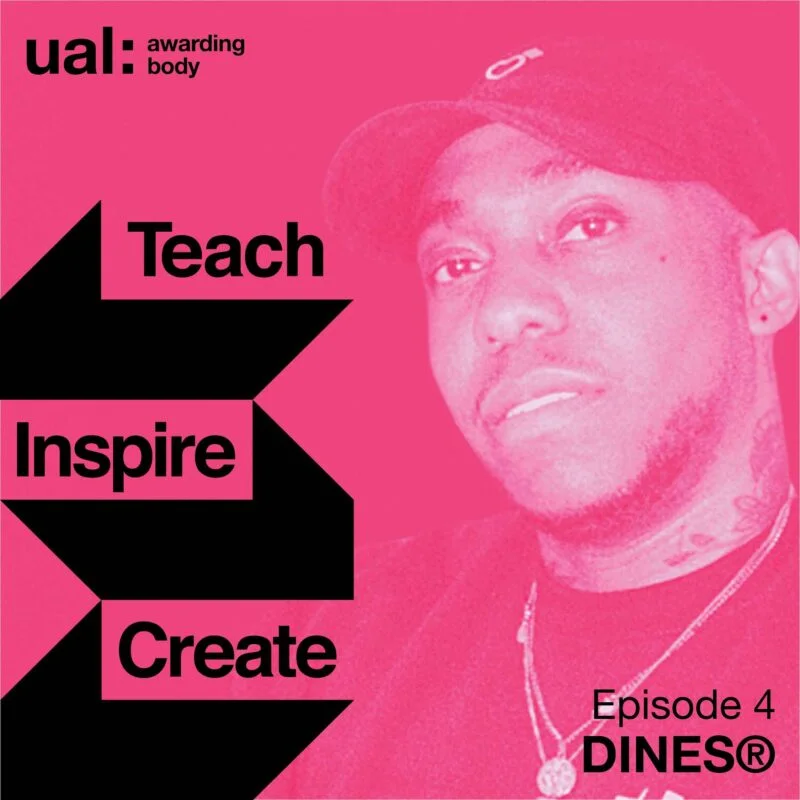
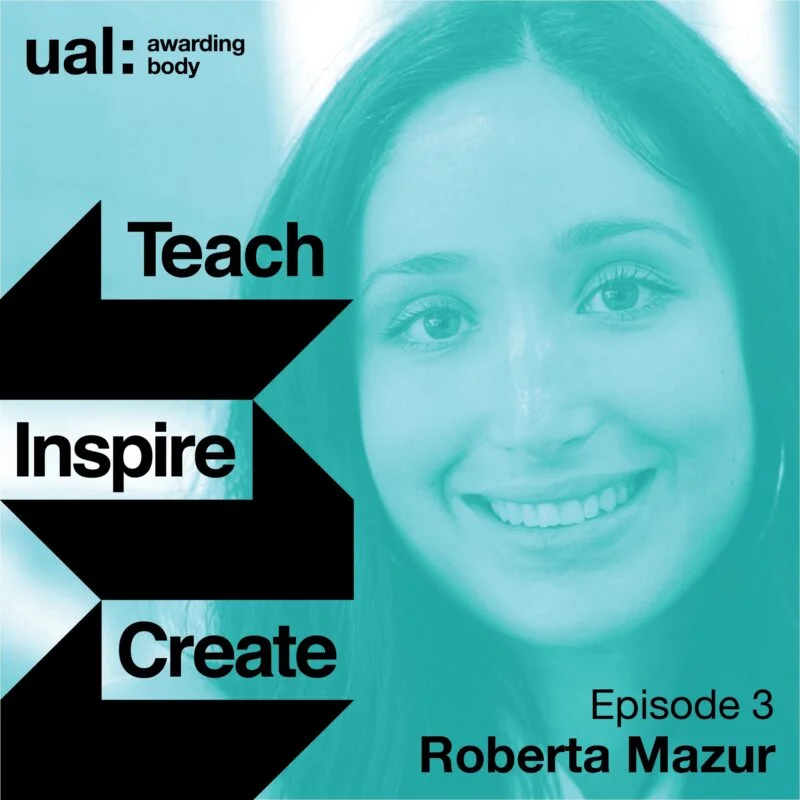
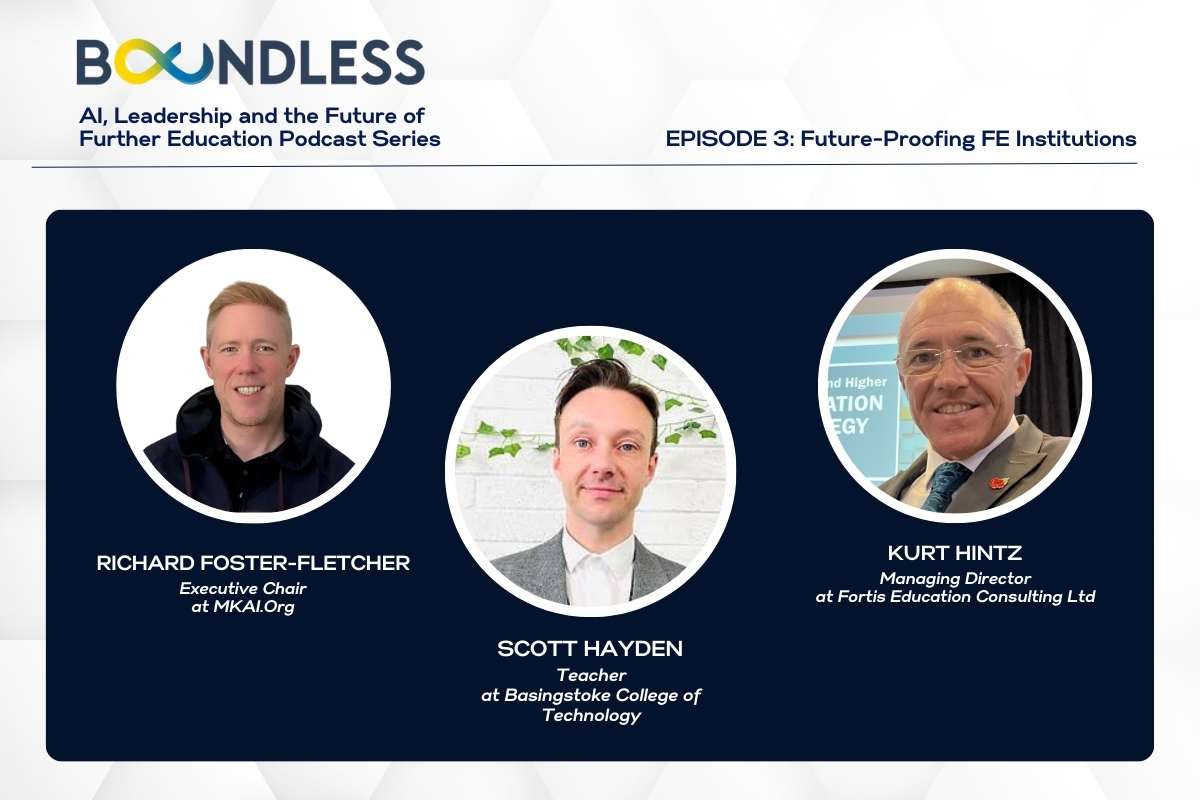
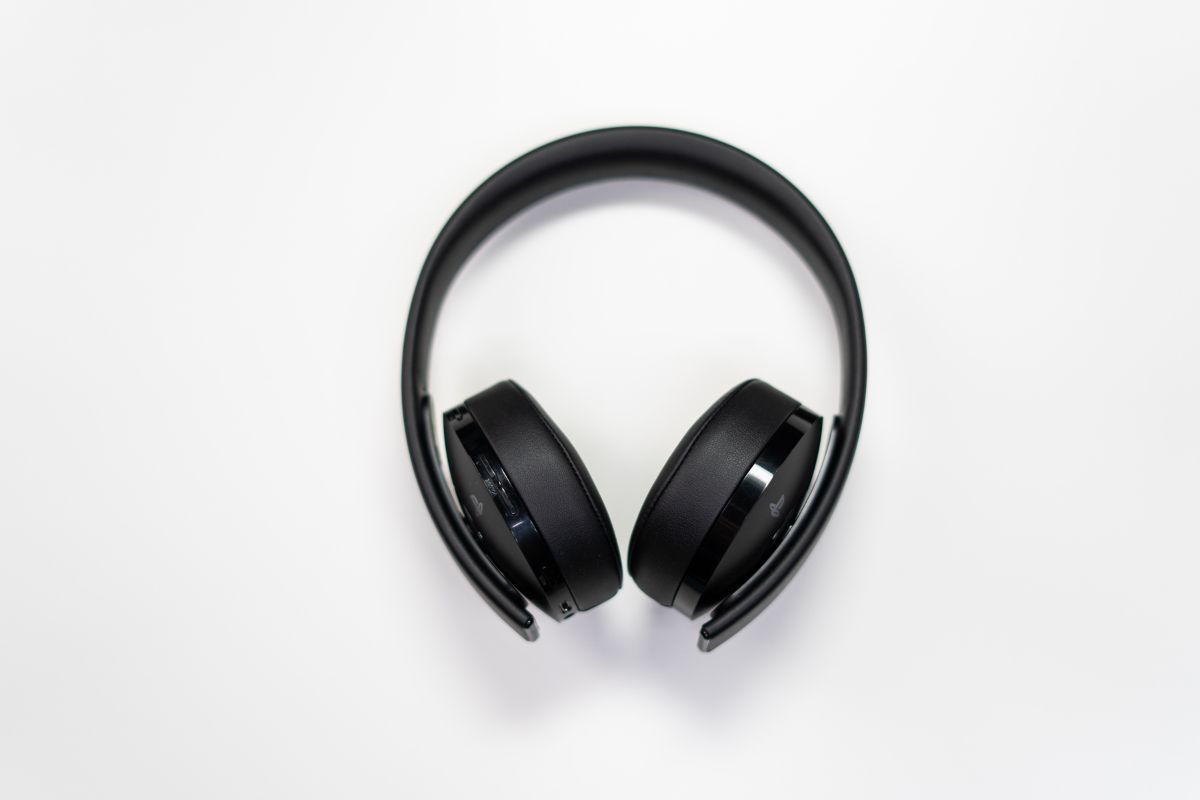
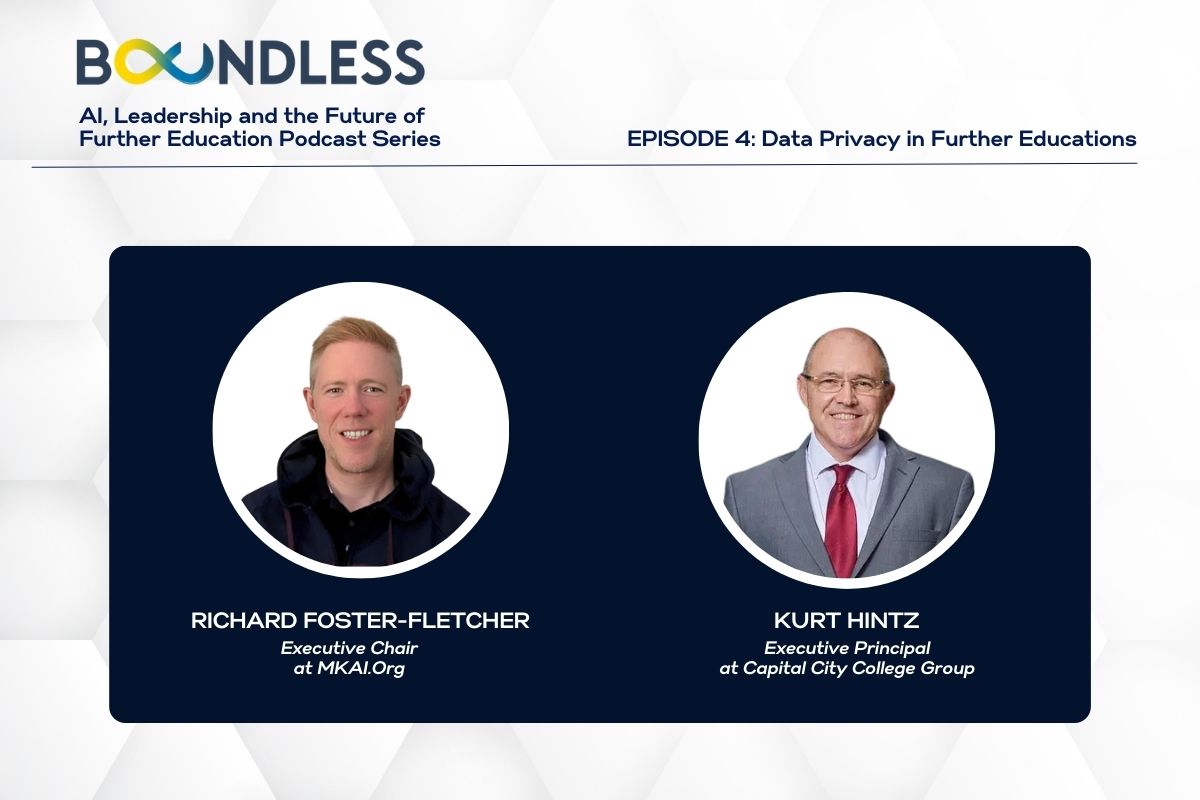

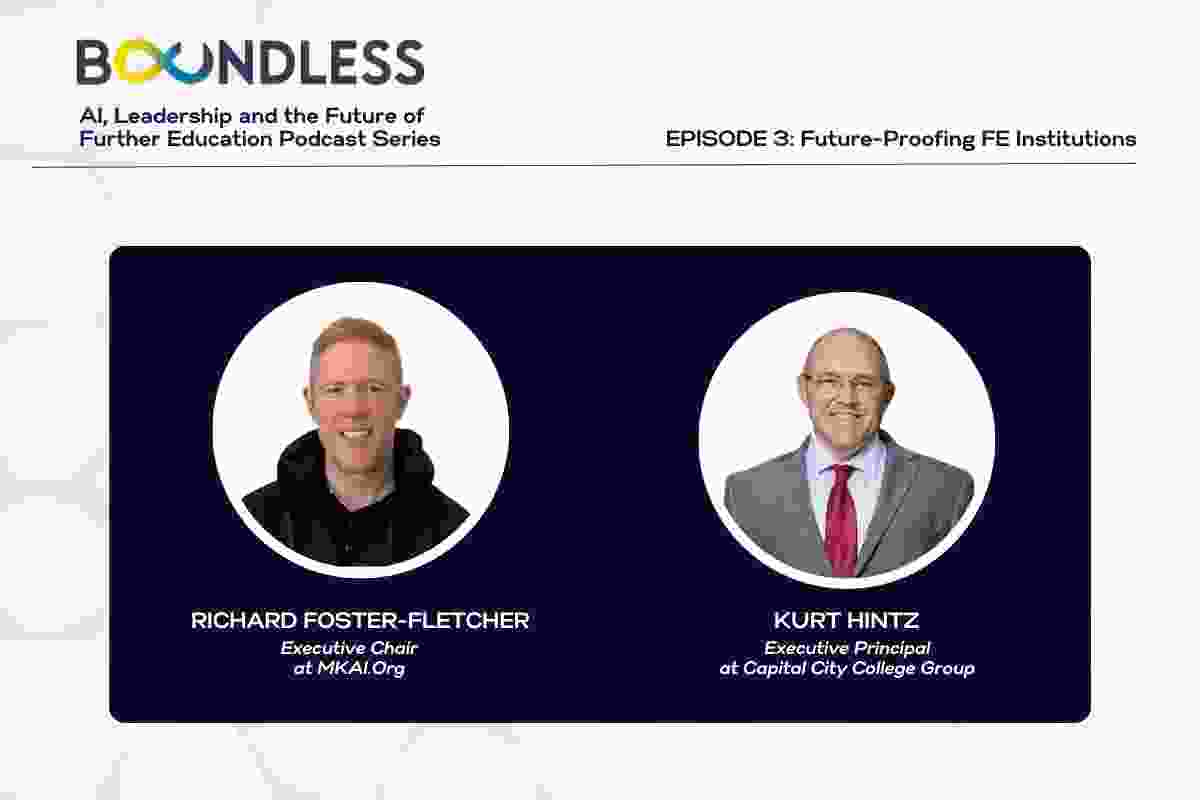
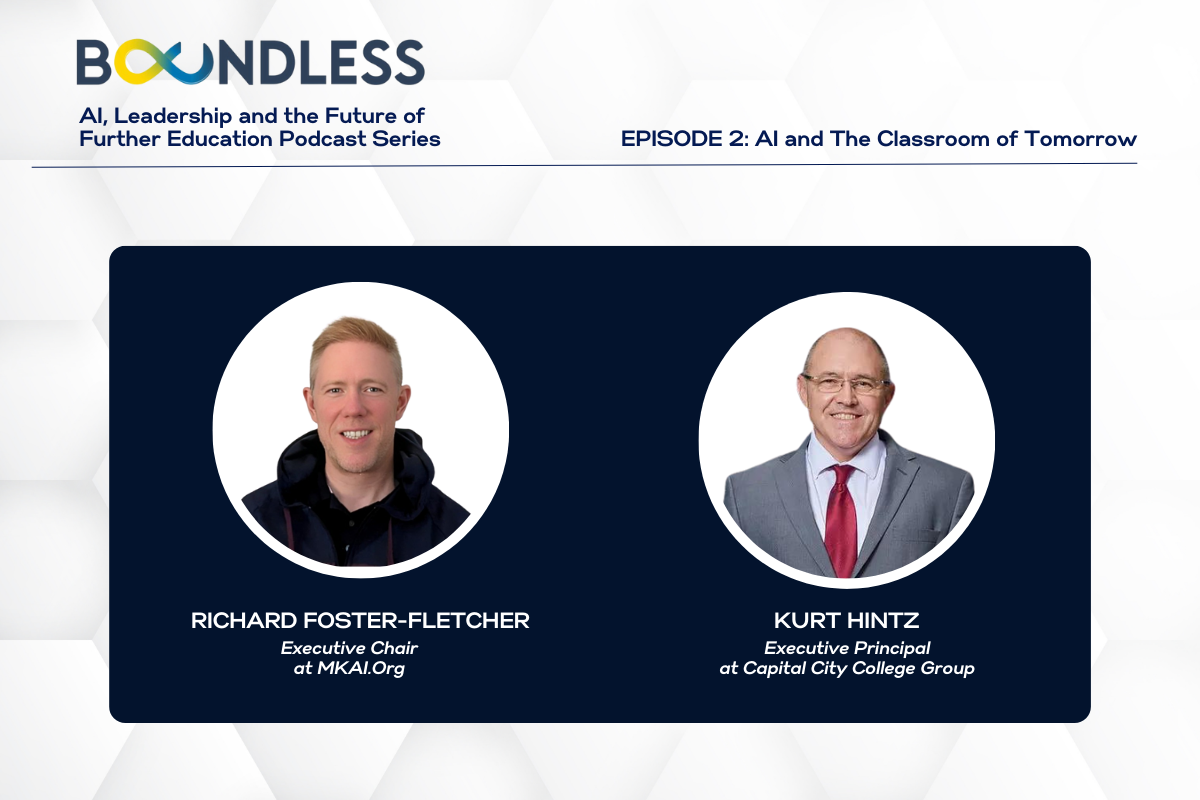
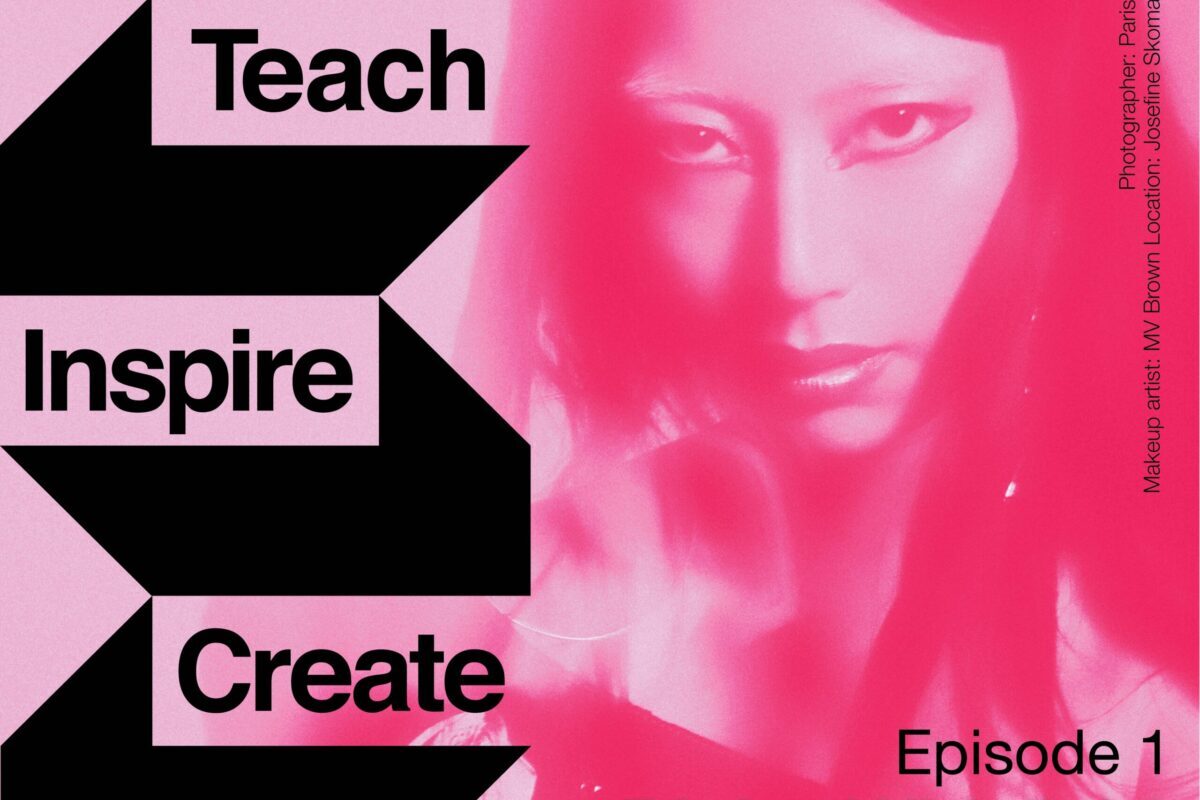

Responses